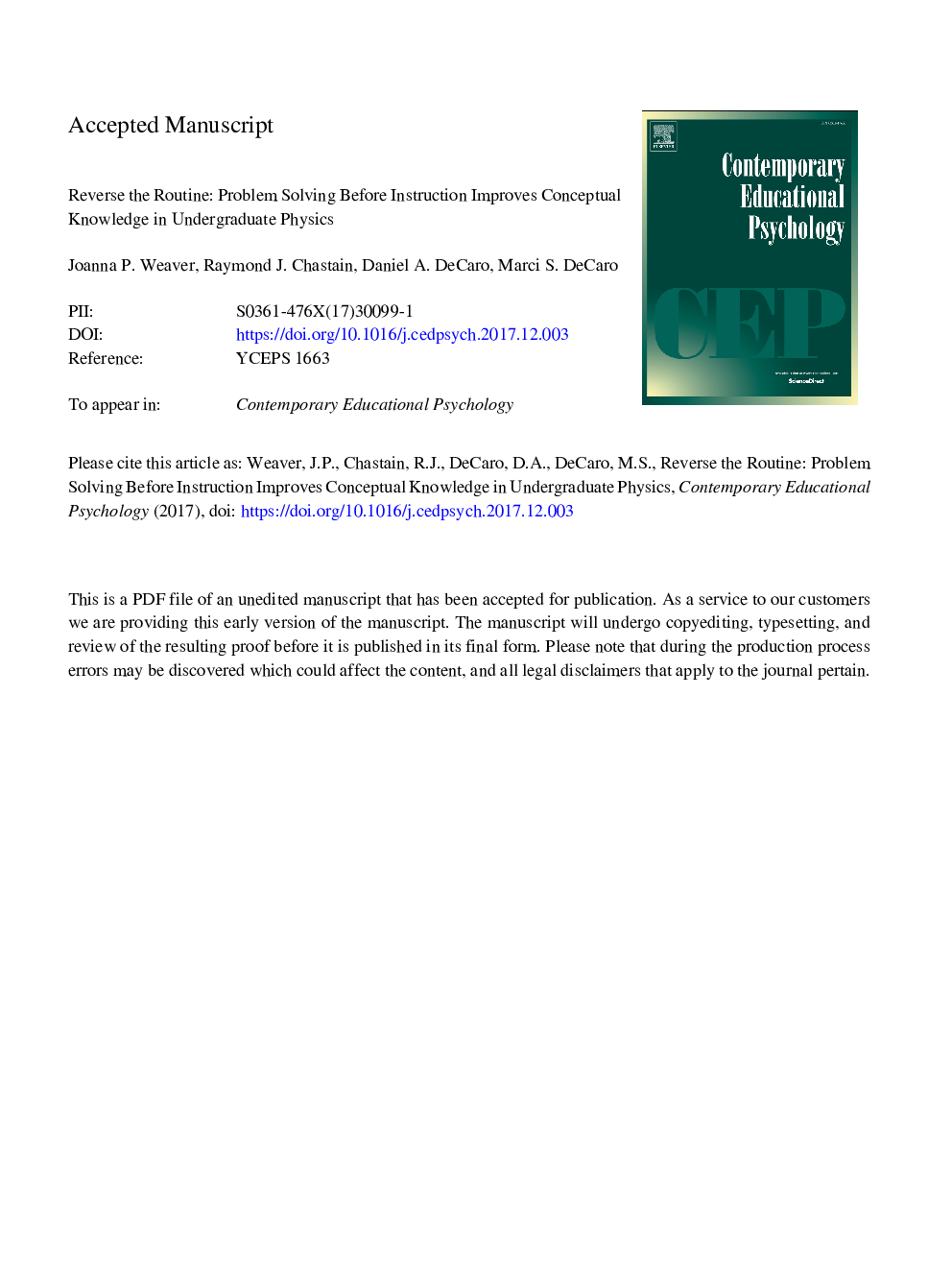| Article ID | Journal | Published Year | Pages | File Type |
|---|---|---|---|---|
| 6839724 | Contemporary Educational Psychology | 2018 | 41 Pages |
Abstract
STEM undergraduate classrooms are increasingly adopting instructional methods to enhance student engagement and improve learning outcomes. For example, in exploratory learning, students explore novel problems before they are taught the underlying concepts and procedures. The current studies examined the benefits of exploratory learning in undergraduate physics instruction. In Studies 1 and 2, students worked collaboratively in groups to complete a learning activity before lecture (explore-first condition) or after (instruct-first condition). The two studies were conducted in different semesters, with different physics courses and instructors of record. Students' conceptual understanding and procedural knowledge (problem-solving accuracy) were assessed using an instructor-created quiz. Performance on the learning activity indicated that students in the explore-first condition struggled as much as (Study 2) or more than (Study 1) students in the instruct-first condition. However, on the quiz, students in the explore-first condition exhibited better conceptual understanding and equal procedural knowledge, compared to students in the instruct-first condition. In addition, self-reported interest and enjoyment were either equal (Study 1) or greater (Study 2) in the explore-first condition. Study 3 tested the effects of exploring alone versus in a collaborative group. Learning outcomes were equal across conditions, suggesting that there is no added learning benefit of exploring collaboratively compared to individually. However, interest and enjoyment were higher when students explored collaboratively, which may have long-term educational benefits. Exploratory learning, with or without collaboration, offers a useful method to improve student engagement and performance in essential undergraduate STEM courses.
Related Topics
Social Sciences and Humanities
Psychology
Applied Psychology
Authors
Joanna P. Weaver, Raymond J. Chastain, Daniel A. DeCaro, Marci S. DeCaro,
